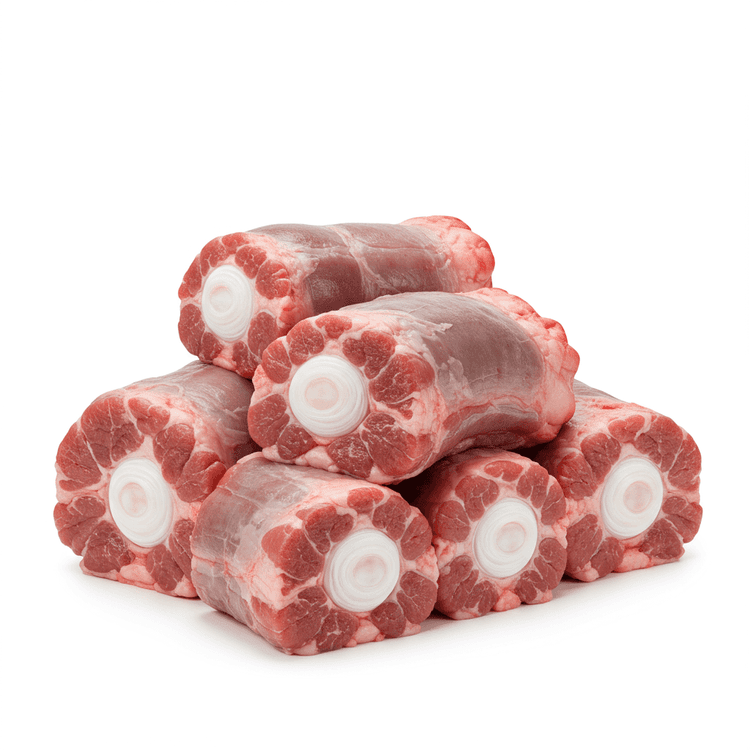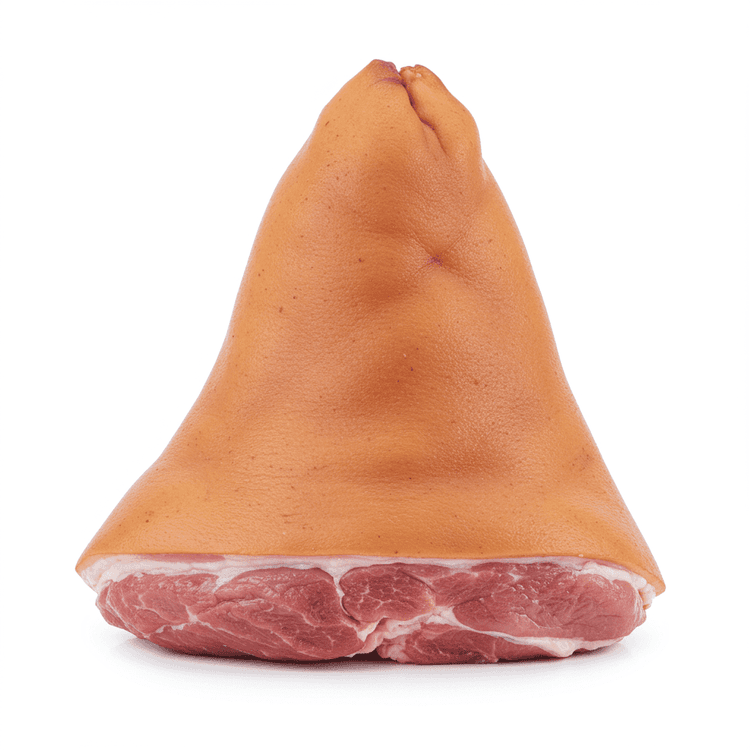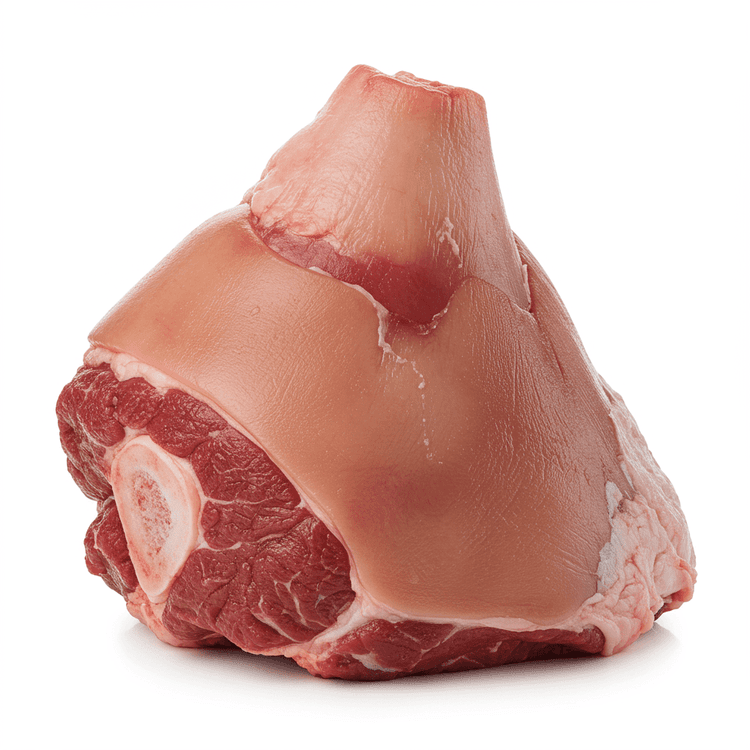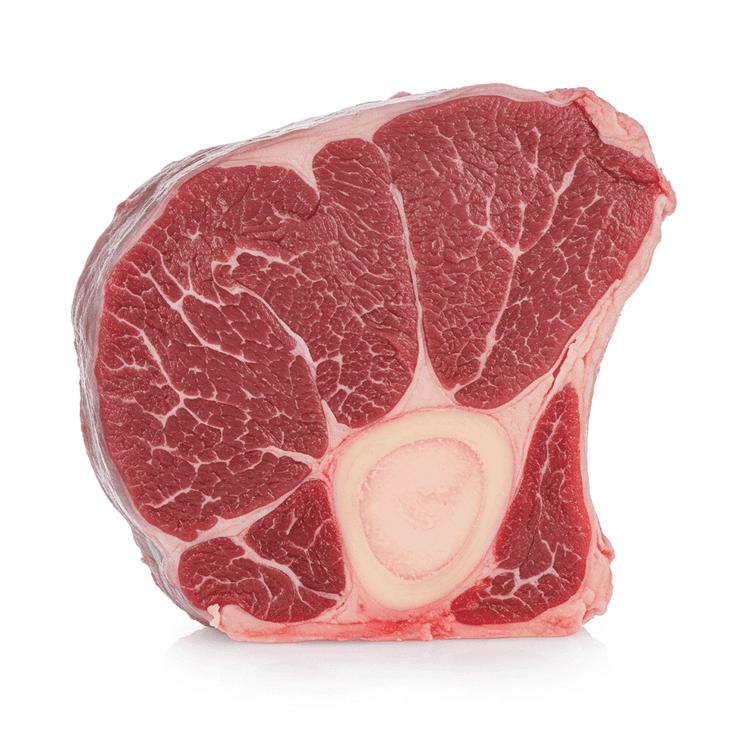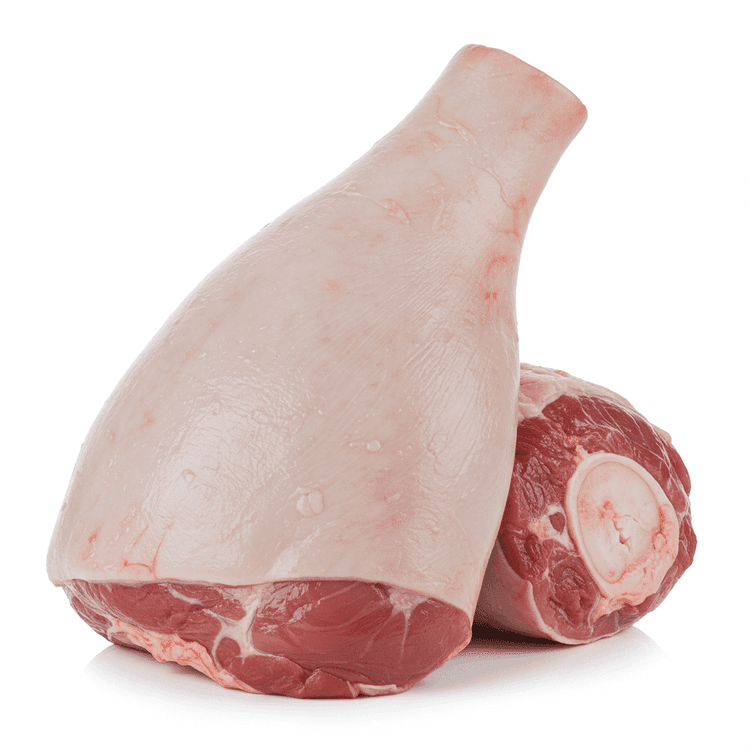
Cow Leg
Cow leg, also known as beef shank, is a cut of beef taken from the leg of the cow. It's known for being a tougher cut, rich in connective tissue and marrow, which transforms into incredibly tender, flavorful, and gelatinous meat when slow-cooked. Cow leg typically has a meaty appearance with bone marrow at the center. The resulting braised meat is incredibly savory with a rich beefy taste and a melt-in-your-mouth texture. Perfect for hearty soups and stews or braised dishes, Cow leg provides depth and body to culinary creations.
Common Uses
- Slow-braised cow leg for stews: Cow leg is often slow-braised in flavorful liquids like broth, wine, or tomato sauce until incredibly tender and the connective tissue breaks down creating a rich and delicious braising sauce perfect for hearty stews and winter warmers.
- Used in soups for rich flavor: Adding cow leg to soups significantly enhances the flavor profile. The marrow and connective tissues release collagen, resulting in a richer, more gelatinous broth with added depth and umami that improves the soup.
- Employed for making stock: Cow leg bones are fantastic for making beef stock. Simmering the bones with vegetables and aromatics extracts their flavor and creates a collagen-rich stock that adds body and richness to soups, sauces, and other dishes.
- Used in Osso Buco: Cow leg is the primary cut used in the classic Italian dish, Osso Buco. The shank is braised in white wine with vegetables, herbs, and broth, resulting in a tender and flavorful meat with a rich sauce typically served with gremolata.
- Added to ethnic dishes: In many cultures, cow leg is used to add flavor and substance to traditional dishes. Recipes vary across cultures, and often include a variety of spices, vegetables, and seasonings to create unique and flavorful meals.
Nutrition (per serving)
Nutrition (per serving)
Calories
252.0kcal (12.6%)
Protein
36.9g (73.8%)
Carbs
0.0g
Sugars
0.0g
Healthy Fat
4.8g
Unhealthy Fat
5.2g
% Daily Value based on a 2000 calorie diet
Nutrition (per serving)
Calories
252.0kcal (12.6%)
Protein
36.9g (73.8%)
Carbs
0.0g
Sugars
0.0g
Healthy Fat
4.8g
Unhealthy Fat
5.2g
% Daily Value based on a 2000 calorie diet
Health Benefits
- Rich in collagen, supporting skin elasticity and joint health.
- Contains essential amino acids vital for muscle repair and growth.
- Source of gelatin, which may improve gut health and digestion.
- Provides minerals like calcium and phosphorus, contributing to bone strength.
- Offers iron, crucial for energy production and preventing anemia.
- May help reduce inflammation due to the presence of glycine and proline.
Substitutes
Chefadora AI is here.
Experience smarter, stress-free cooking.
Storage Tips
Raw cow leg should be stored in the refrigerator at temperatures below 40°F (4°C) and used within 1-2 days. Wrap it tightly in plastic wrap or place it in an airtight container to prevent contamination and drying out. Cooked cow leg can also be refrigerated for up to 3-4 days in a sealed container. For longer storage, cooked cow leg can be frozen for up to 2-3 months. Thaw in the refrigerator before reheating.
Marnirni-apinthi Building, Lot Fourteen,
North Terrace, Adelaide, South Australia, 5000
Australia
